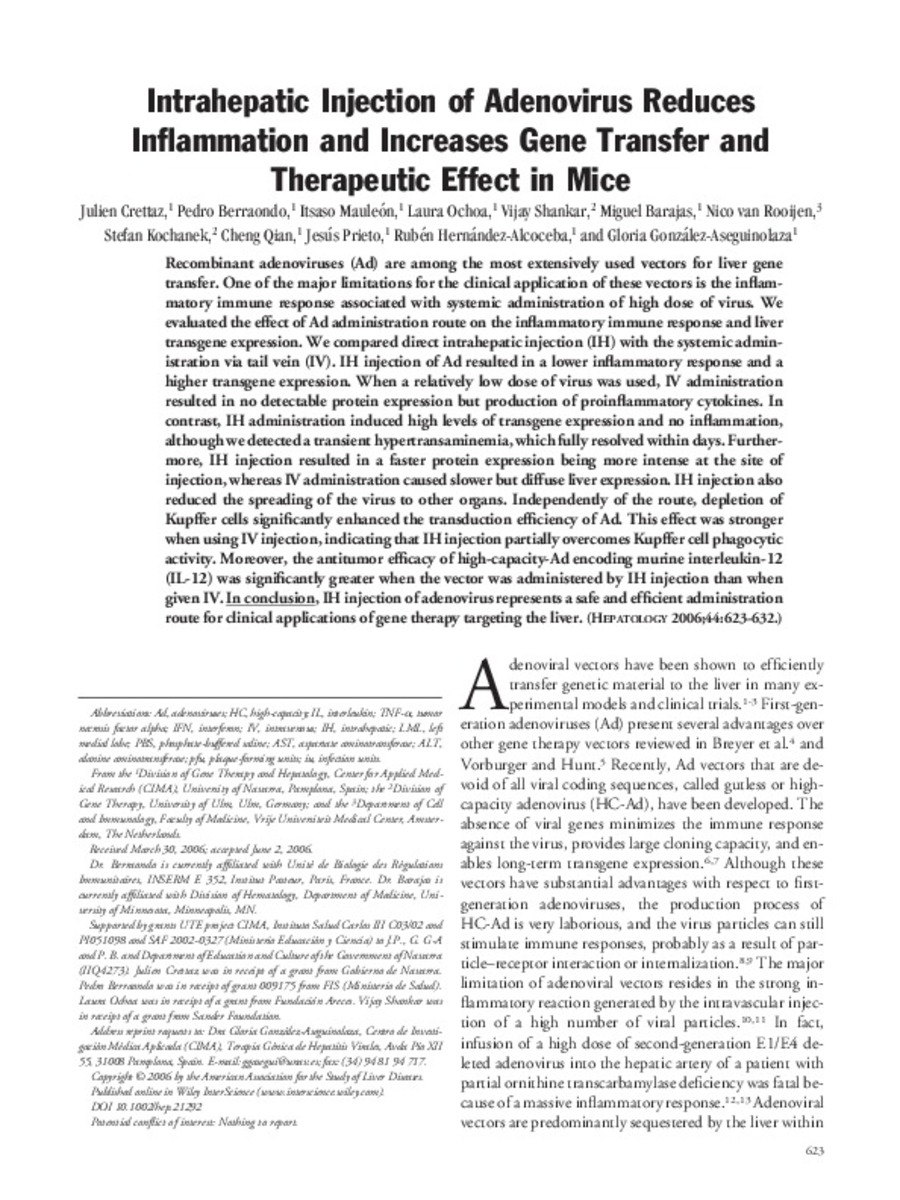Intrahepatic injection of adenovirus reduces inflammation and increases gene transfer and therapeutic effect in mice
Palabras clave :
Adenoviridae/genetics
Gene Therapy/methods
Genetic Vectors/administration & dosage
Liver/virology
Fecha de publicación :
2006
Editorial :
Wiley-Blackwell
Cita:
Crettaz J, Berraondo P, Mauleon I, Ochoa-Callejero L, Shankar V, Barajas M, et al. Intrahepatic injection of adenovirus reduces inflammation and increases gene transfer and therapeutic effect in mice. Hepatology 2006 Sep;44(3):623-632.
Aparece en las colecciones:
Estadísticas e impacto
0 citas en

0 citas en

Los ítems de Dadun están protegidos por copyright, con todos los derechos reservados, a menos que se indique lo contrario.








